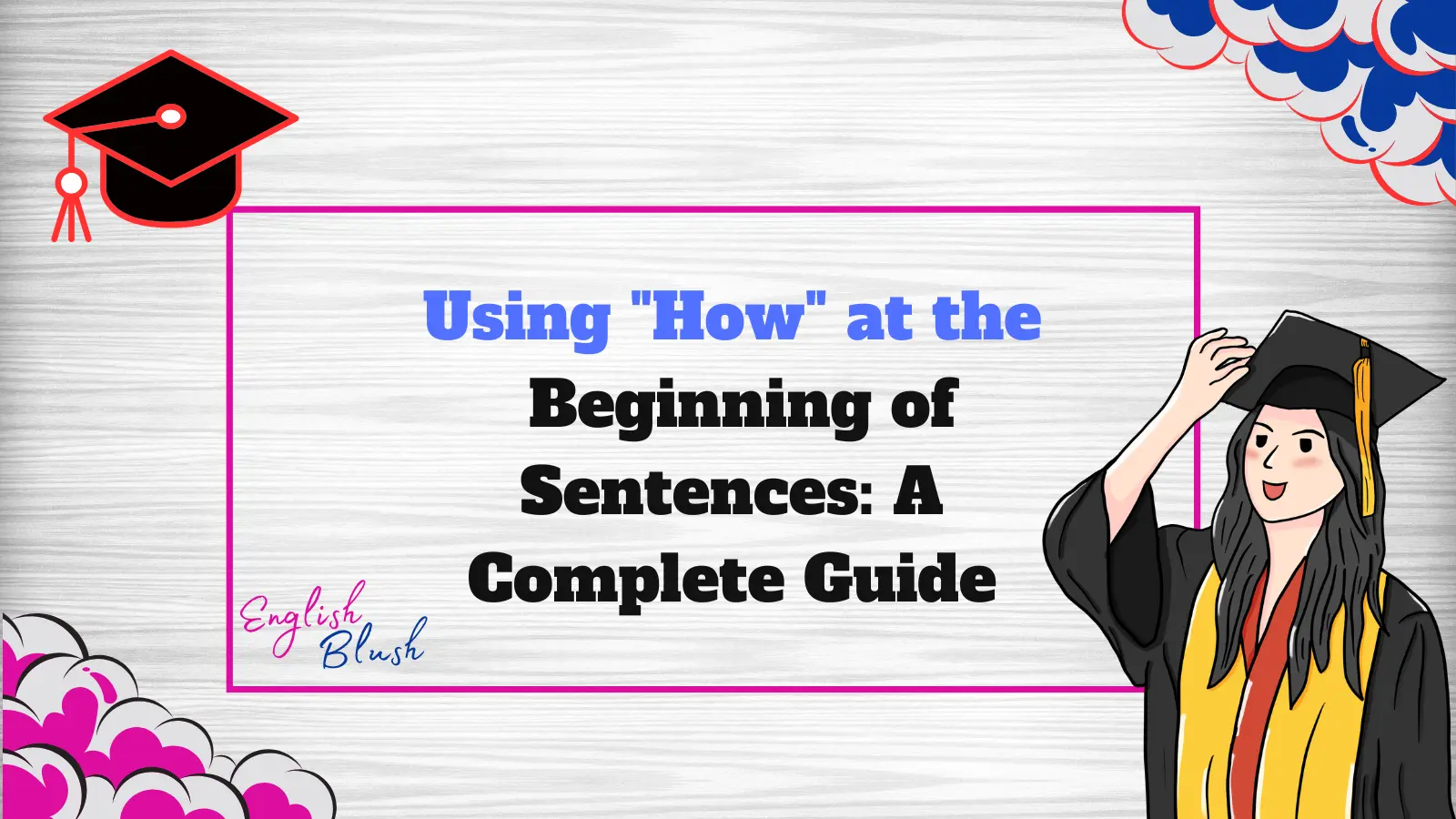Language evolves to suit how we communicate in different settings. One word that’s versatile and powerful is how. You’ll find it in questions, statements, and even as a way to introduce explanations. In this article, we’ll explore how to use how correctly, its different contexts, examples, and other options you can use for variety.
Why Is “How” Important
The word how plays a big role in our conversations. Whether you are speaking casually with friends or crafting a formal email, it helps in expressing questions, explanations, and relationships between ideas.
For example:
- How are you today?
- How can I improve my writing?
- How the world works is fascinating.
Each sentence carries a unique function and sets the tone for what follows.
When to Use “How” in Sentences
There are two main contexts: formal and informal.
1. Formal Uses of “How”
In formal situations, such as work, school, or professional writing, how introduces thoughtful questions, explanations, or detailed descriptions.
Examples:
- How does your organization handle client feedback?
- How this project is managed will determine its success.
- How can students improve critical thinking skills in class?
Using how in this way shows that you want information or are providing clarity about a process or situation.
2. Informal Uses of “How”
In informal settings, such as casual talks or personal messages, how helps to show curiosity, care, or excitement.
Examples:
- How was the concert last night?
- How do you even finish so many books in one week?
- How come you never told me this before?
These uses often carry a friendlier or more emotional tone compared to the formal style.
Types of Sentences That Use “How
Let’s break down the common types of sentences where how plays an important role.
1. Questions
Most commonly, how introduces questions that explore a process or condition.
Examples:
- How can I bake a chocolate cake?
- How is your new job going?
2. Explanations
Sometimes, how opens up a sentence to explain a process or situation.
Examples:
- How recycling works is simple but effective.
- How children learn best varies from child to child.
3. Expressions of Surprise or Curiosity
You can use how to express strong feelings, whether you’re amazed or puzzled.
Examples:
- How amazing that concert was!
- How is it possible you’ve never heard this song before?
4. Introducing Comparisons
How can also set up comparisons or relationships.
Examples:
- How you prepare matters just as much as what you prepare.
- How someone treats others says a lot about their character.
Alternatives to “How”
If you find yourself overusing how, try switching things up with these alternatives.
1. For Questions:
- Instead of: How can I fix this problem?
Try: What steps should I take to fix this problem? - Instead of: How do we reduce costs?
Try: In what ways can we reduce costs?
2. For Explanations:
- Instead of: How the system works is easy to follow.
Try: The process behind the system is easy to follow.
3. For Comparisons:
- Instead of: How we spend our time affects our success.
Try: The way we spend our time affects our success.
Common Mistakes When Using “How”
1. Overloading Sentences
Sentences with how can sometimes become too long and confusing. Break them down into simpler sentences.
Too Complicated:
- How the meeting ended up being rescheduled due to unforeseen conflicts with everyone’s schedules could have been communicated earlier.
Simplified:
- The meeting was rescheduled because of scheduling conflicts. This could have been communicated earlier.
2. Confusing Formal and Informal Contexts
Be careful to match your tone to the setting. Using overly casual how phrases in formal writing, like How come, can seem unprofessional.
Avoid in Formal Writing:
- How come the report isn’t done yet?
Better:
- Why isn’t the report completed yet?
Practice Using “How”
Here are a few exercises to improve your skills.
- Rewrite the sentence using how:
- Explain the process of growing plants.
- Your Answer: How do you grow plants?
- Create a question starting with how about something in your daily life.
- Example: How do I find time to exercise?
Final Thoughts
The word how is an essential part of the English language. It helps ask questions, explain processes, and express emotions. By understanding when and how to use it, you can communicate more clearly and effectively in both formal and informal settings.
Remember, practice is key! Try to use how in conversations and writing to see how it enriches your communication skills.





